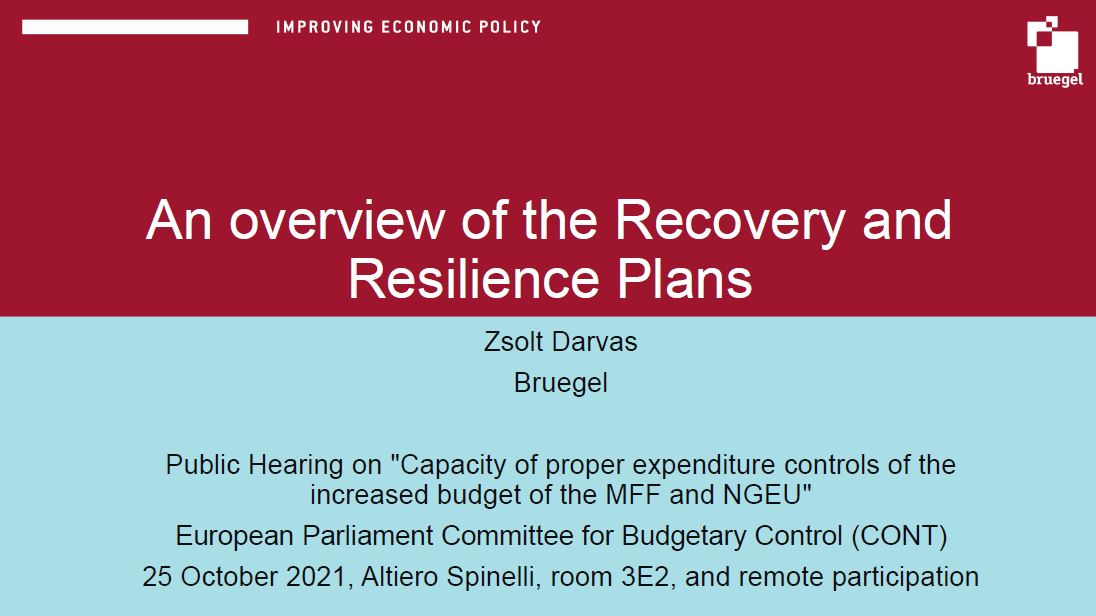Opinion
Europe’s recovery gamble
Next Generation EU, was rightly hailed as a major breakthrough: never before had the EU borrowed to finance expenditures, let alone transfers to member states. But the programme and its Recovery and Resilience Facility amount to a high-risk gamble.
To help their pandemic-hit economies recover, European Union leaders agreed in July to borrow €750 billion to finance €390 billion in grants and €360 billion in loans to the bloc’s member states. The programme, Next Generation EU, was rightly hailed as a major breakthrough: never before had the EU borrowed to finance expenditures, let alone transfers to member states.
But the programme and its Recovery and Resilience Facility, which will disburse most of the funds, amount to a high-risk gamble. If the plan succeeds, it will surely pave the way to further initiatives, and perhaps ultimately to a fiscal union alongside the monetary union established two decades ago. But if the plan fails to deliver on stated goals, if political interests prevail over economic necessity, federal aspirations will be dashed for a generation.
The first question is on the size of the programme. Although €390 billion in grants may look like a large sum of money, it actually amounts to less than 3% of EU GDP, to be spent over several years.
Jason Furman, a former chairman of US President Barack Obama’s Council of Economic Advisers, reckons that the US government’s fiscal response to the 2008 global financial crisis amounted to $1.6 trillion, or about 10% of GDP. That was three to four times more, in response to a much milder shock.
On the whole, therefore, individual countries remain in charge of warding off the pandemic blow.
Actually, the fiscal support already committed by leading EU member states represents 7%-12% of national GDP – and significantly more is in the pipeline.
Nonetheless, the EU grants could make a big difference for some countries still reeling from the euro crisis. Transfers net of expected repayments should be worth 4% of GDP for Spain, 5% for Portugal, and 8% for Greece, according to European Central Bank calculations. This is more than the 2.6% of GDP aid the US granted to Europe under the Marshall plan. If invested shrewdly, such amounts could change the recipient countries’ economic fate.
The next question concerns speed. In the spring of this year, EU economies entered free fall. They have now recovered from their troughs, but are still operating at about 5% below capacity. Given the new wave of infections, and rising unemployment, the immediate issue is whether these economies’ growth momentum will endure or weaken.
Should Europe’s recovery falter, a vicious circle of precautionary savings and worsening expectations could ensue, possibly leading to a double-dip recession. The appropriate strategy is therefore to make budgetary support contingent on the pace of the recovery. Money should be available now and disbursed quickly in case of need.
But make no mistake: the EU support package will come only later. Before its money can start to be spent, the bloc must agree on priorities, procedures and conditions, which inevitably takes time. Less than 10% of the money is expected be paid out in 2021, and 15% in 2022, according to the ECB. As matters stand, therefore, responsibility for sustaining the recovery remains with the EU’s member states. Even in 2022, it will be too early to pass the baton to the EU and wind down national stimulus packages. The temptation of early fiscal consolidation must be resisted.
Rather than seeking to engineer a Keynesian cyclical demand boost, the goal of Next Generation EU is in fact structural: to chart a new economic development path. The scheme aims to increase economic resilience, support the transition to a carbon-free economy, accelerate digitalisation and mitigate the social and regional fallout from the pandemic crisis. Which brings us to the third question: not how quickly EU money will reach southern Europe, but whether it will help tackle long-standing curses including low productivity, structural unemployment, inequality and reliance on carbon-intensive technologies.
The EU is clear on this point, and the European Commission in mid-September set out the type of investment and reform plans member states are expected to devise in order to access the money. Although national governments will have the responsibility of drawing up plans, they will have to return to the drawing board if the EU deems the projects too vague or soft to be effective. This could prove politically explosive in countries such as Italy, whose prime minister, Giuseppe Conte, fought for days and nights at the July 2020 summit against northern EU members’ efforts to make financial support conditional on pre-defined reforms.
The proposed compromise is sensible but fragile. Member states’ plans will be rated against their stated goals and overall objectives such as growth, job creation and resilience, while disbursement will be conditional on recipient countries achieving agreed milestones and targets. This arrangement involves neither political conditionality (‘first reform your pensions, then we can talk’) nor rubber-stamping (‘here’s the money, please tell us what you do with it’). Rather, it is meant to be a contract whereby money is intended to serve certain goals, and the EU checks that the conditions to achieve them are in place.
But heated controversies are to be expected if the Commission does its job, rejects ineffective plans, and delays disbursements when milestones and targets are not met. The risk is that the process ends up in a bureaucratic squabble that the public cannot decipher but provides ammunition to populists.
To avoid falling into this trap, the EU will have to strike the right balance between intrusiveness and indulgence. It should select for each recipient a few targets and criteria that are specific, clear and nearly indisputable; and it should be ready to fight for these yardsticks. It will also need to scrutinise the allocation of funds, and quickly raise a red flag in case of embezzlement. As Bruegel’s Guntram Wolff has pointed out, evidence of corruption would be lethal for Europe’s grand ambitions.
Thomas Edison famously said that genius is 1% inspiration and 99% perspiration. Inspiration was behind the July decision. Now, Europe should start sweating. For the good cause.
Republishing and referencing
Bruegel considers itself a public good and takes no institutional standpoint.
Due to copyright agreements we ask that you kindly email request to republish opinions that have appeared in print to [email protected].











